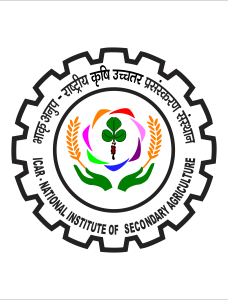The ICAR-National Institute of Secondary Agriculture (NISA), previously known as the Indian Institute of Natural Resins and Gums (IINRG), and even earlier as the Indian Lac Research Institute (ILRI), is situated in Namkum, Ranchi, within the state of Jharkhand. This institute operates as a part of the Indian Council of Agricultural Research (ICAR) under the Ministry of Agriculture and Farmer’s Welfare, Govt. of India. Notably, in September 2022, ICAR-NISA underwent a name change to better reflect its modified mandate, which now encompasses all facets of secondary agriculture. Dating back to its establishment in September 20, 1924, ICAR-NISA stands as one of the most esteemed institutions working on natural products. It boasts a rich history of 99 years of dedicated service to the nation and going to celebrate its centenary in the year 2024.
Previously, the Indian Lac Research Institute (ILRI) had been the nodal Institute at national level for providing research and development support to all aspects of lac such as production, processing, product development, technology dissemination, information repository and national and international cooperation. It has immensely contributed towards all round development of lac besides maintaining India`s leadership in production, installed processing capacity and export.
In view of production systems, economy and application areas, which were largely overlapping for lac and other natural resins and gums, mandate of ILRI was expanded to include all natural resins and gums, besides lac and the name of the institute was changed to Indian Institute of Natural Resins and Gums (IINRG) on September 20, 2007. Adequate R & D support by the institute to this sub-sector enabled India to emerge as the leader in some more resins and gums besides maintaining leadership in lac, guar gum and karaya gum.
To increase the income of farmers, value addition of the produce and utilizing the crop residues is attaining high priority. Secondary Agriculture is high value addition to primary agriculture. It helps in using all parts of an agricultural produce (e.g. crop residues, animal hair, bones, viscera, etc), processing to enhance shelf-life, increasing total factor productivity, and generating additional jobs and income for farmers. Certain alternative agriculture activities like Lac culture, beekeeping, mushroom cultivation, agri-tourism, etc, also fall under the ambit of secondary agriculture. By-products from agricultural crops, if processed appropriately for deriving industrial products could pave a way in getting better economic returns from agriculture.
Keeping in view the importance of secondary agriculture in rural industrialization in order to improve farmer’s income, it was proposed to further widen the mandate of the IINRG. Therefore, the Governing Body of ICAR Society in its 256th meeting approved the proposal and the new name of the Institute as National Institute of Secondary Agriculture. Consequent to this decision of the Council, Indian Institute of Natural Resins and Gums has been rechristened as National Institute of Secondary Agriculture (NISA) with effect from September, 20, 2022.
The Institute is situated 9 km south-east of Ranchi city, on the National Highway – 33 (Ranchi-Jamshedpur), at an altitude of 650 m above mean sea level between 23o23” N latitude and 85o23” longitude, with a mild and salubrious climate.
Vision
To become driving source for rural agro-industrialized economy and act as International referral institute of Secondary Agriculture (SA).
Mission
Bridging gaps in building rural industries and reducing imports through Secondary Agriculture.
Mandates
- Research on tertiary and higher level of processing and value addition to agri-produce including natural resins, gums and aqua produce.
- Pilot plants, human resources and entrepreneurship development for high value products’ production.
Objectives
- To Augment the Agri-bio-resources and develop processes and machinery for pilot level production of their tertiary and quaternary level processed products.
- To develop technology for converting non-food agri-biomass to food ingredients forms and manufacture foods using machine and tools.
- To establish agri-business incubation centres, develop human resources and disseminate the technologies of secondary agriculture.

